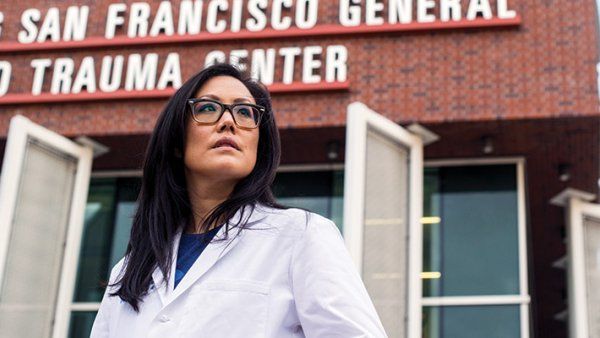‘Music of Speech’ Linked to Brain Area Unique to Humans
Insights into pitch control could pave the way for advanced brain prosthetics that could allow people who can’t speak to express themselves in a naturalistic way.

University of California San Francisco
Give to UCSFInsights into pitch control could pave the way for advanced brain prosthetics that could allow people who can’t speak to express themselves in a naturalistic way.

In the U.S. News annual survey for 2018-19, UCSF Benioff Children’s Hospitals’ campuses in Oakland and San Francisco placed among the country’s finest in all 10 pediatric specialties that were surveyed.

Sensory Processing Disorder, or SPD, causes some children to find everyday stimuli excruciating. Scientists are finally shedding light on what causes the disorder and what can be done about it.
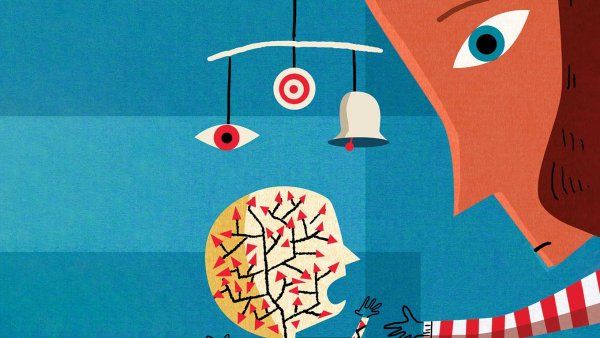
A rainbow-hued contingent from UCSF turned out for the 48th annual San Francisco LGBT Pride Parade.
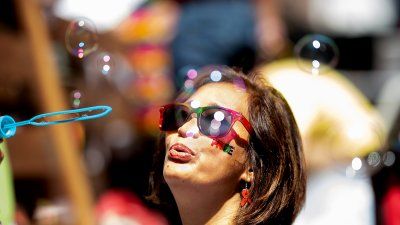
UCSF researchers have identified a key biological pathway in human cancer patients that appears to prime the immune system for a successful response to immunotherapy drugs – checkpoint inhibitors.

UCSF and a newly formed, next-generation nonprofit organization, Health Hub, are announcing their plans to affiliate.

Researchers identified a protein that cancer cells use as a shield to protect the PI3K pathway against targeted drugs, and showed that blocking this protein allowed previously ineffective therapies to slow cancer cell growth and shrink tumors.

Patricia “Pat” O’Sullivan has been named the 2018 recipient of the UCSF Lifetime Achievement in Mentoring Award.
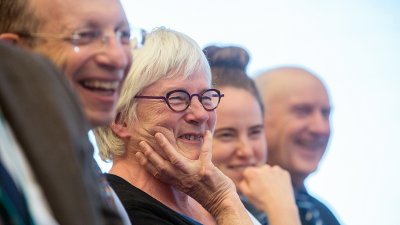
UCSF researchers quantified the effects of Prop 47, which reclassified drug possession offenses from felonies or “wobblers”.

A so-called “jumping gene” that researchers long considered either genetic junk or a pernicious parasite is actually a critical regulator of the first stages of embryonic development.

Each year, 300,000 infants worldwide are born with sickle cell. UCSF Benioff Children’s Hospitals are at the the leading edge of advancements to cure sickle cell disease.

Scientists have used ultra-high-resolution cryo–electron microscopy to capture the most detailed portrait ever of an opioid drug triggering the biochemical signaling cascade that gives it its power.
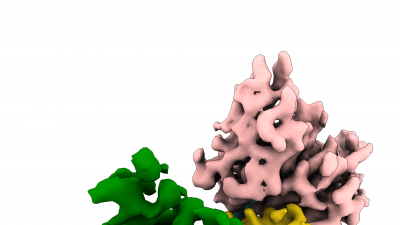
Lloyd Hollingsworth “Holly” Smith Jr., a visionary physician-scientist whose uncompromising quest for excellence over a career spanning half a century helped transform UCSF into the world-renowned health sciences university it is today, died peacefully at his home on June 18.
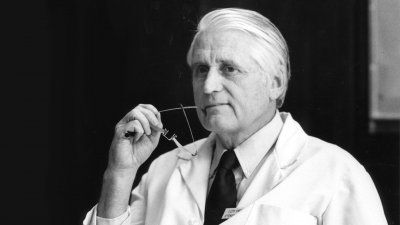
UCSF has received two gifts of real estate properties that will ease the housing crunch for faculty and free up space for thriving clinical and academic programs at Mission Bay – supporting key University goals.

Forty percent of deaths attributed to cardiac arrest are not sudden or unexpected, and nearly half of the remainder are not arrhythmic – the only situation in which CPR and defibrillators are effective.
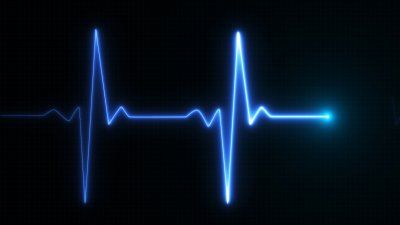
UCSF scientists have improved mobility in rats that had experienced debilitating strokes by using electrical stimulation to restore a distinctive pattern of brain cell activity associated with efficient movement.

With the June 11 opening ceremony, the University Child Care Center at Mission Bay officially becomes the largest child care center in San Francisco.
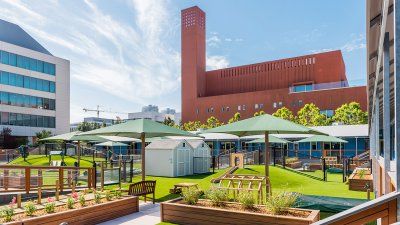
People with severe mental illness are more than twice as likely to have Type 2 diabetes, with even higher risks among patients who are African American or Hispanic, according to a new study led by UCSF.
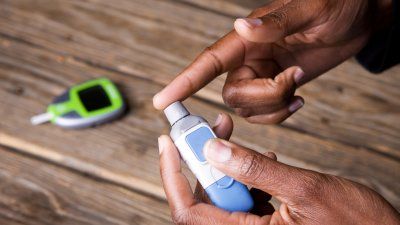
With a new project – Rural Health Advanced Practice Training – the UCSF School of Nursing hopes to help fill gaps in health care by encouraging and training advanced practice nurses to work in rural settings.

A staggering 64,000 people in the United States died in 2016 from drug overdoses – and a study led by UCSF’s Daniel Ciccarone is aiming to get at the heart of of the problem, including by interviewing opioid users.

This UC San Francisco competition challenges PhD students to use engaging “nonspecialist” language to describe their intricate research – in three minutes or less. Bioengineering student Yiqi Cao won the top prize this year for her talk about how to improve stents to reduce scar tissue. “Grad Slam was an incredible opportunity to challenge myself,” Cao says. “It’s definitely not easy to distill … many years of research down to a meaningful three minutes.”
As a kindergartener, Nerdette co-host Greta Johnsen was diagnosed with an eye condition that is among the best diseases for experimenting with the gene editing tool CRISPR. This episode follows Greta, her father, and UCSF geneticist and Gladstone Institutes investigator Bruce Conklin, MD, as he tries to develop the perfect CRISPR system to remove the faulty DNA from Johnsen’s eye cells.
Former department chair Catherine Gilliss, RN, PhD ’83, returned to UCSF last fall as dean, her third deanship at a top U.S. nursing school.
This new book by international palliative care expert and UCSF physician Steven Pantilat, MD ’89, serves as a guide for those who don’t know where to start at a difficult time. Pantilat makes sense of what doctors may say, what they actually mean, and how to get the information you need to make the best medical decisions.
A performance at UCSF by Oscar winner Frances McDormand sparks a conversation about facing death.
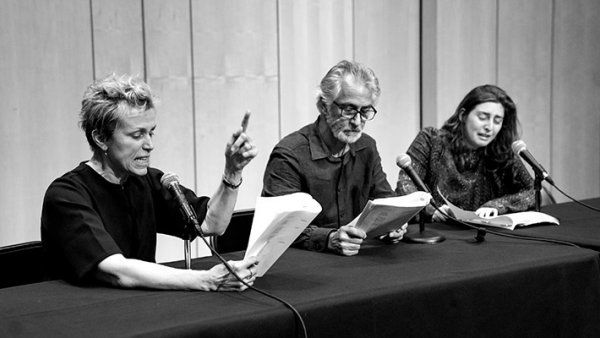
Teens like Anthony Orosco are using their creative juices to change the conversation about Type 2 diabetes, thanks to a partnership between UCSF and arts nonprofit Youth Speaks.
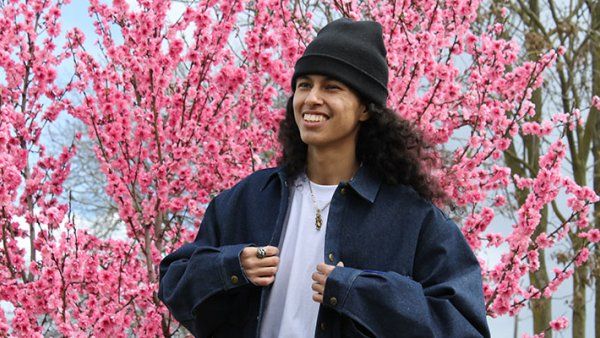
Emergency room physician Debbie Yi Madhok designed a rapid-response protocol for strokes that is improving the odds for patients.
